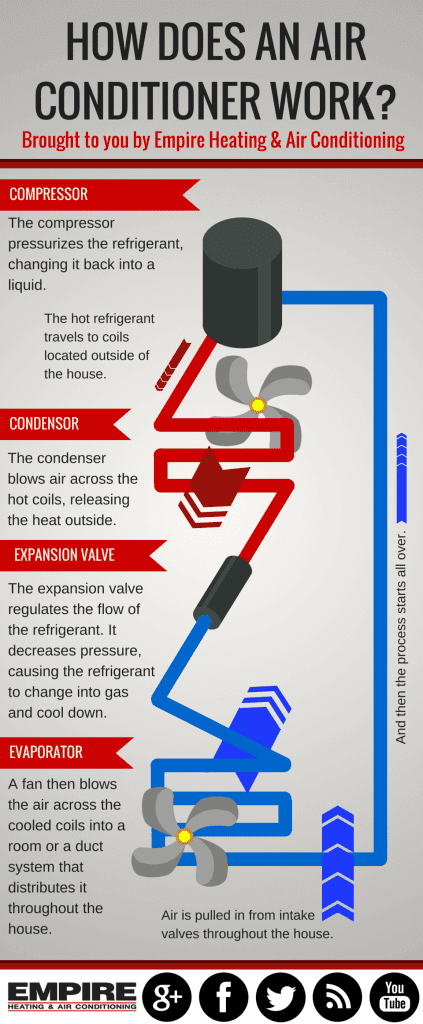Checking Out The Environmental Advantages Of Warmth Pumps - A Sustainable Heating Service
Checking Out The Environmental Advantages Of Warmth Pumps - A Sustainable Heating Service
Blog Article
Material Produce By-Long Hewitt
In an age where sustainability and power efficiency are critical, several businesses look for environmentally friendly home heating options. One such solution is the heatpump.
A heatpump removes the heat in its environments and pumps it right into your home, resulting in one of the most effective environmentally friendly central heater around. This process also generates no greenhouse gas discharges, making it an extremely sustainable technology.
Power Performance
Heatpump are really power effective and require little maintenance. They utilize much less power than other heating systems and are by far one of the most eco-friendly. They function well with rooftop solar and can typically pay for themselves in utility savings alone.
They can likewise provide cooling, which is terrific for garage workshops, attic hangouts and bonus offer areas, and home additions without prolonging the existing ductwork. They can even be used for retrofits in existing homes with hydronic (water-based) distribution systems such as low temperature level radiators or glowing floorings.
Look for designs with SEER and HSPF ratings that meet or exceed Canada's minimum criteria, along with the standards in your area. Higher rankings mean better effectiveness, which conserves you money over time and lowers your carbon impact. You could even get approved for discounts and incentives! The most effective systems are those with a ground warmth exchanger for included effectiveness. These units can absorb thermal energy from the ground throughout the wintertime and remove it in the summer season.
Decreased Greenhouse Gas Emissions
Heatpump operate on electrical power and essentially transfer warm from the air, also when it's cold outside. They have the ability to extract the cost-free warm trapped in air particles and move them indoors, decreasing moisture while doing so.
Compared to gas heaters, modern-day heatpump make use of less than one kilowatt of power per kilowatt of heating power they produce. This makes them the most energy reliable heating option offered with a COP (Coefficient of Performance) of four or more. By reducing https://www.nytimes.com/2017/06/02/realestate/the-best-way-to-cool-your-space.html for fossil fuels, heat pumps help in reducing greenhouse gas exhausts and reduce other significant air toxins.
Building decarbonization is an international necessary, and the a/c market is a vital chauffeur of that process. Whether it's real estate investors making internet absolutely no dedications, plan manufacturers establishing discharges limitations, or lessees demanding greener spaces, electrical heat pumps are being acknowledged as an important solution. They are an economical means to minimize carbon discharges by eliminating the demand for fossil fuels in buildings.
Adaptability
Heat pumps can be used in numerous types of homes and buildings-- with or without ducts. They work with hot-water radiators, air-conditioning and programmable thermostats. click this link can change heaters or be set up in brand-new houses. They can run on photovoltaic panels, geothermal systems or even district heating sources like wastewater.
They're wonderful at supplying more warm per energy device. For instance, an air-source heatpump creates approximately three or even more home heating units from each power system it consumes.
Obtaining one of the most from your heatpump will depend on your environment zone and quality of insulation. Look for models with ENERGY STAR rankings and compare their SEER or HSPF specifications. In warmer environments, focus on SEER; in chillier regions, take into consideration a system with a greater HSPF score. Furthermore, invest in air securing and insulation to lower the load on your heat pump. That will certainly improve energy effectiveness and aid you reach your Internet Zero goals faster.
Biomass Boilers
Biomass boilers make use of wood pellets, chips or logs to develop warm and hot water. They are a great choice for off-grid residential properties or those that wish to get off the gas grid.
As a standalone heating system, biomass can offer sufficient power to maintain your home warm throughout the year without the regular warm drop off of various other sustainable modern technologies. They can likewise be utilized combined with photovoltaic panels to maximise financial savings and take advantage of RHI settlements.
A disadvantage of these systems is the in advance cost and regular fuel distributions. Typically, pellets will certainly require to be blown into a fuel shop making use of a vacuum system or they can be manually fed right into the central heating boiler via a hopper. Logs are generally self-sourced from neighboring timberland or purchased in bulk. Along with this, they require hands-on loading and may require cleansing on a regular basis.